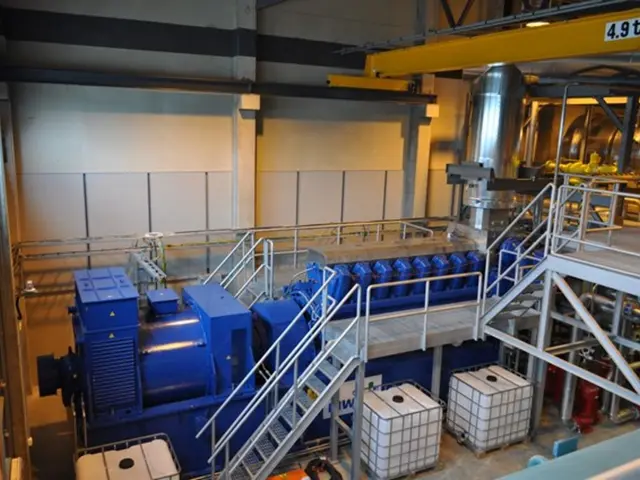A Spike in Corporate Bankruptcies: A 27% Surge in Insolvencies in Berlin and Brandenburg
Businesses report a substantial increase in bankruptcy filings - Surge in Businesses Filing for Bankruptcy Noticeably Increases
A noticeable climb in the number of insolvent businesses in Berlin and Brandenburg was reported last year, with a whopping 27% increase in companies filing for bankruptcy. The Office for Statistics Berlin-Brandenburg revealed that there were 2,092 insolvency applications in the capital, and 431 in Brandenburg - an increase of 24.6% in the latter. The combined claims from both states totalled over 18 billion euros - a staggering 900% surge in Berlin's claims as per reports.
The Signa insolvency complex has drawn the attention of district courts in the capital. Out of the more than 2,500 insolvency applications, around 1,700 proceedings were initiated, leaving the remaining cases dismissed due to insufficient assets to cover procedural costs.
These surging insolvencies can be attributed to a mix of economic troubles and structural issues hitting businesses in the region. The capital has been grappling with budget cuts, including a reduction from €40 billion to €35.7 billion in the state budget for 2022 and 2023, affecting sectors like education, transport, and the environment. Moreover, major projects like the Berlin Brandenburg Airport, marred by construction flaws, cost overruns, and delays, have hurt associated companies and contractors. Profitable players like Air Berlin succumbed to these pressures, filing for bankruptcy amidst stiff competition from established hubs.
Transformation to adapt to digitalization, demographic changes, and decarbonization demands substantial resources and progress, causing financial strain on companies resistant to change or burdened by legacy costs. Despite the positive growth in GDP and investment capital, these pressures continue to challenge businesses in the region.
Claims associated with these insolvencies are expected to be substantial given the magnitude of economic and infrastructural challenges faced. The airport's inability to become a major international hub, coupled with unpaid debts, contractor claims, and financial liabilities from construction failures, contribute to these expectations.
In a nutshell, the surge in corporate bankruptcies in Berlin and Brandenburg is a result of economic austerity, costly infrastructure mismanagement, fierce market competition, and transformational pressures that are testing the resilience of the region's businesses. While exact current claims from these insolvencies aren't specified, they are expected to be considerable due to the magnitude of the economic and infrastructural problems faced.
In an attempt to mitigate these massive financial burdens and support the affected businesses, there could be a push for increased community aid and funding, potentially involving vocational training programs for workforce restructuring in different industries. Given the current economic climate, businesses in the region might need to explore opportunities for re-financing, flexible repayment plans, or seeking financial assistance from banks or other financial institutions. Moreover, vocational training initiatives could assist businesses in transitioning towards industries less susceptible to the economic pressures mentioned.








